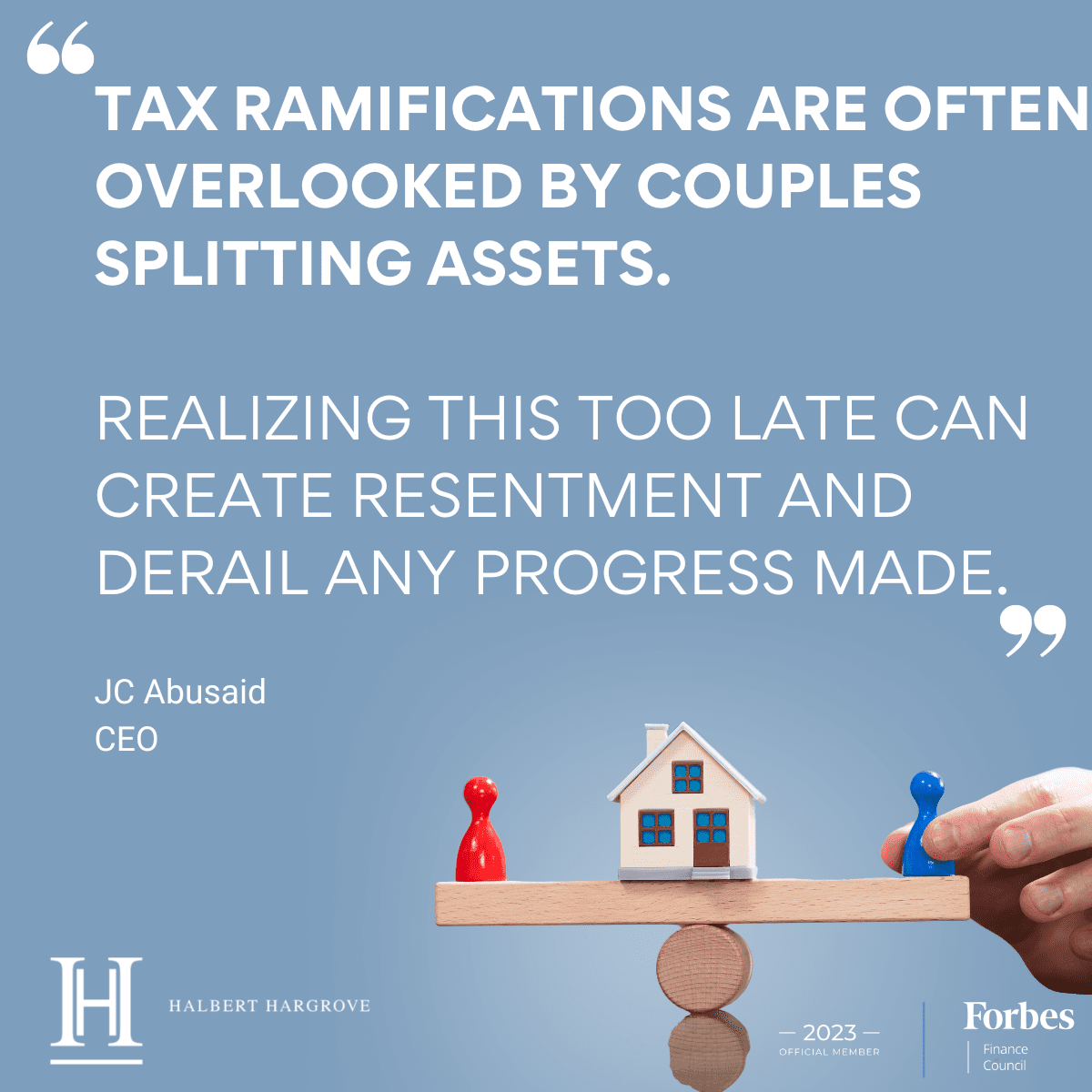When getting divorced, there are 13 financial considerations you shouldn’t overlook. See what our CEO JC Abusaid recommends you evaluate.
By Expert Panel® JC Abusaid, CEO/President
1. Joint Credit Accounts
Consumers don’t want to be responsible for any poor credit decisions by an ex-spouse. They may want to pay attention to joint credit accounts and those for which an ex-spouse may have listed them as an authorized user. As for loans for which you may have co-signed, you may be on the hook, but consumers may wish to try to negotiate something as part of the divorce. – Adam Singer, Credit Report Law Group
2. Mortgage Payments
If the mortgage is under both names on the credit report, then it’s important to make sure there are plans to refinance the mortgage to the individual responsible for the mortgage rather than relying on the divorce decree. Even though the divorce decree says who is responsible for paying the mortgage, if that person is late and it’s in both names, it affects both credit reports. – Jose Rodriguez, Got Credit?
3. Your Life Insurance Policy
In most cases of divorce, the main breadwinner secures life insurance to cover future alimony and/or child support in the event the breadwinner has a premature death. Most people choose a random amount. What needs to be done is to calculate the present value of future payments in order to make sure the future payments are covered. – Michael Seltzer, Vérité Group, LLC
4. Credit Scores
It’s often forgotten that divorce can impact your credit score. To protect your financial health, pay extra attention to any joint credit accounts and make timely payments. Otherwise, it could make it harder to obtain loans or credit cards in the future. – Cody Barbo, Trust & Will
5. Lifestyle Changes
While a worksheet identifying living expenses is required in the process of going through a divorce, it’s critical to understand and know these numbers well. Doing so will give you perspective on how the settlement affects your lifestyle, potential withdrawals from investments to supplement your income and impact on retirement and leaving a financial legacy. – Meredith Moore, Artisan Financial Strategies LLC
6. Tax Ramifications
Tax ramifications are often overlooked by couples splitting assets. For example, they assume if one gets the retirement accounts and the other gets the house at similar values, then they have an equitable split. Yet, the tax implications of one or the other can change the values dramatically, making it no longer equitable. Realizing this too late can create resentment and derail any progress made. – John Abusaid, Halbert Hargrove
Learn more about why you should seek advice from a divorce financial advisor.


